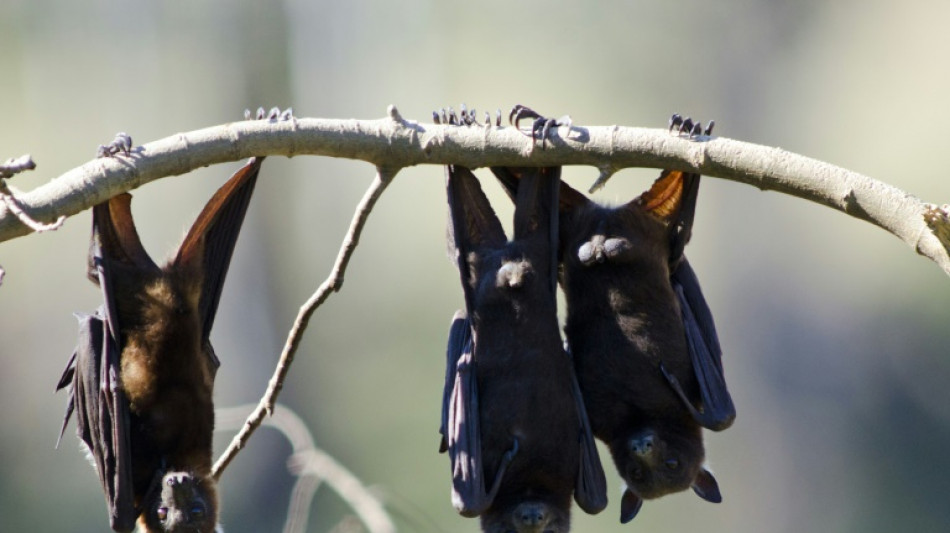
SCS
0.0200

An Australian man has died from an "extremely rare" rabies-like infection transmitted by a bat bite, health officials said Thursday.
The man in his 50s was bitten by a bat carrying Australian bat lyssavirus several months ago, the health service in New South Wales said.
"We express our sincere condolences to the man's family and friends for their tragic loss," NSW Health said in a statement.
"While it is extremely rare to see a case of Australian bat lyssavirus, there is no effective treatment for it."
The man from northern New South Wales, who has not been identified, was this week listed as being in a "critical condition" in hospital.
Officials said he was treated following the bite and they were investigating to see whether other exposures or factors played a role in his illness.
The virus -- a close relative to rabies, which does not exist in Australia -- is transmitted when bat saliva enters the human body through a bite or scratch.
First symptoms can take days or years to appear.
Early signs of the disease are flu-like -- a headache, fever and fatigue, the health service said.
The victim's condition rapidly deteriorates, leading to paralysis, delirium, convulsions and death.
There were only three previous cases of human infection by Australian bat lyssavirus since it was first identified in 1996 -- all of them fatal.
- 'Coma and death' -
People should avoid touching or handling bats, as any bat in Australia could carry lyssavirus, the New South Wales health service said.
Only wildlife handlers who are trained, protected, and vaccinated should interact with the flying mammals, it warned.
"If you or someone you know is bitten or scratched by a bat, you need to wash the wound thoroughly for 15 minutes right away with soap and water and apply an antiseptic with anti-virus action," it said.
"Patients then require treatment with rabies immunoglobulin and rabies vaccine."
The virus has been found in species of flying foxes and insect-eating microbats, NSW Health said.
The type of bat involved in the latest fatality has not been identified.
Australian bat lyssavirus was first identified in May 1996 by scientists at the national science agency CSIRO, who examined brain tissue from a flying fox that had been showing "nervous signs" in New South Wales.
Later that year, a bat handler in Queensland became ill.
"The initial numbness and weakness suffered in her arm progressed to coma and death," the science agency said in an online document on the virus.
"Two further cases in Queensland -- a woman in 1998 and an eight year old boy in 2013 -- resulted in death after being bitten or scratched by a bat," it said.
There are subtle differences between the lysssavirus in flying foxes and insectivorous bats, the science agency has found.
Infected bats can transmit the virus to people, other bats and other mammals.
M.Soucek--TPP